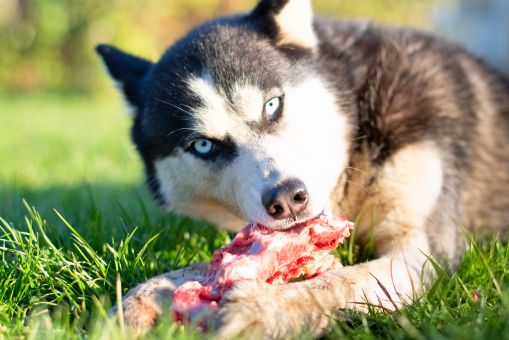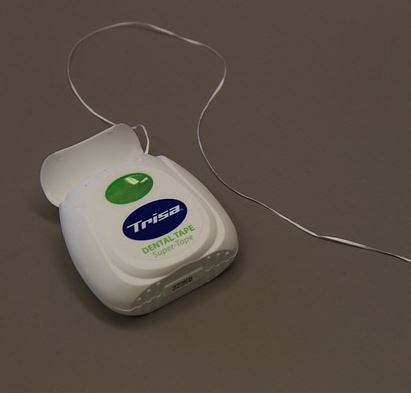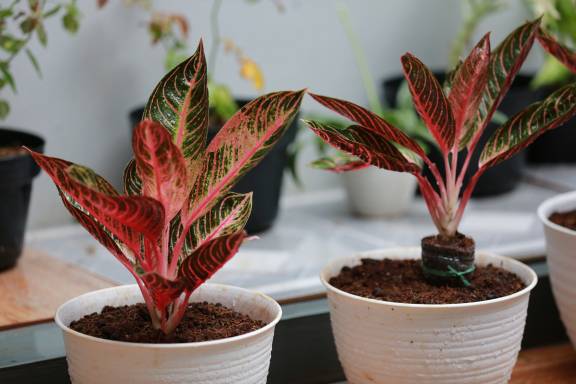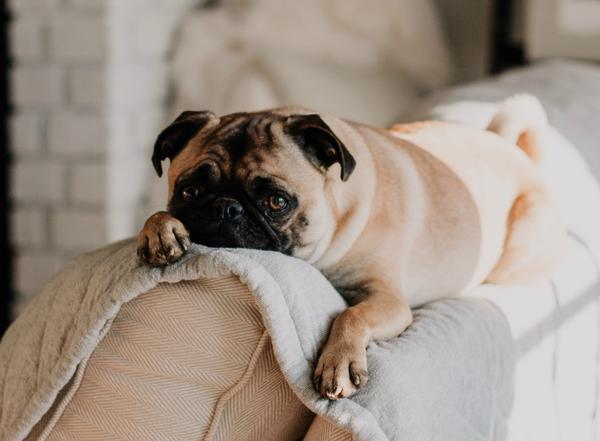Has your dog eaten some bone shards? Are you worried the bone shards could be harmful to your dog? If so, then you’ve come to the right place!
Connect with a verified veterinarian in minutes. Licensed vets are available 24/7 to answer your questions. No need to worry about your furry family member.
In this article, we’ll take a look at the problems that bones and bone shards can cause. Then we’ll let you know what to do if your dog has eaten bone shards.
What are Bone Shards?
Bone shards are small, sharp, possibly jagged pieces of bone that come from a larger bone. Bone shards can develop if you’re cutting up bones or if a dog gets a larger bone and chews it.
Many dogs love to chew on bones; however, can bones be dangerous for your dog? Can bones make your dog sick?

Bones & Dogs
Yes, bones can cause problems for your dog. Bones that are raw may be safer but they can still cause problems. And cooked bones are worse because cooking makes them dry and brittle and therefore more likely to splinter into sharp pieces..
Bones can cause the following problems in dogs:
Mouth and tongue injuries: because the bone shards are sharp, they can cut or puncture the tongue, lips, cheeks, or even the soft palate and the roof of the mouth.
Broken teeth: hard, brittle bones can also break teeth as the dog chews them.
Can become stuck across the jaw: bones can become stuck across the lower or upper jaw, behind the dog’s front teeth.
Bones can choke: the bone or bone shards can become stuck in the esophagus, where they can block a dog’s airways, causing the dog to choke.
Bones can become stuck in the stomach: this is another problem, especially in bone pieces that are large.
Intestinal blockage: larger bones or even a bunch of bone shards can cause an intestinal blockage in the dog’s intestines.
Peritonitis: a bone shard can be large enough to pierce through the dog’s stomach or intestines. This can lead to a life-threatening inflammation of the abdomen called peritonitis..

Review symptoms, medications & behavior to keep your pets healthy with a Vet Online in just minutes.
Ask a Vet Live NowSymptoms of Bone Shards Damage in Dogs
You may notice these symptoms if bone shards are causing a problem for your dog:
- Gagging/coughing
- Vomiting
- Lethargy
- Abdominal pain
- Constipation
- Excessive thirst
- Licking their lips (or licking the air)
- Pacing anxiously
- Cannot sit comfortably
If your dog is showing any of these symptoms, then call the vet immediately. This could be a life-threatening medical emergency. It could be that your dog is choking or has developed an intestinal blockage, etc.
In most cases, your dog should completely recover if he receives prompt medical care.
Connect with a verified veterinarian in minutes. Licensed vets are available 24/7 to answer your questions. No need to worry about your furry family member.

Gemma Cliffin BSC BVSC MRCVS
This article has been reviewed and approved by an independent Veterinarian: Dr Gemma Cliffin MRCVS is an experienced small animal vet who combines her love of writing alongside working in practice. Since her graduation from the University of Liverpool in 2014 she has worked in a wide variety of roles including first opinion practice, as a night vet and as a locum vet. She has also spent time working at a charity clinic in the Cook Islands which was a challenge but also immensely rewarding. She loves all aspects of veterinary work, but she especially enjoys medicine cases and diagnostic imaging. She is passionate about pain-management, particularly in her more senior patients. She currently works in a first opinion small animal practice in North Yorkshire where she deals with both routine and emergency cases.
Review symptoms, medications & behavior to keep your pets healthy with a Vet Online in just minutes.
Ask a Vet Live Now





